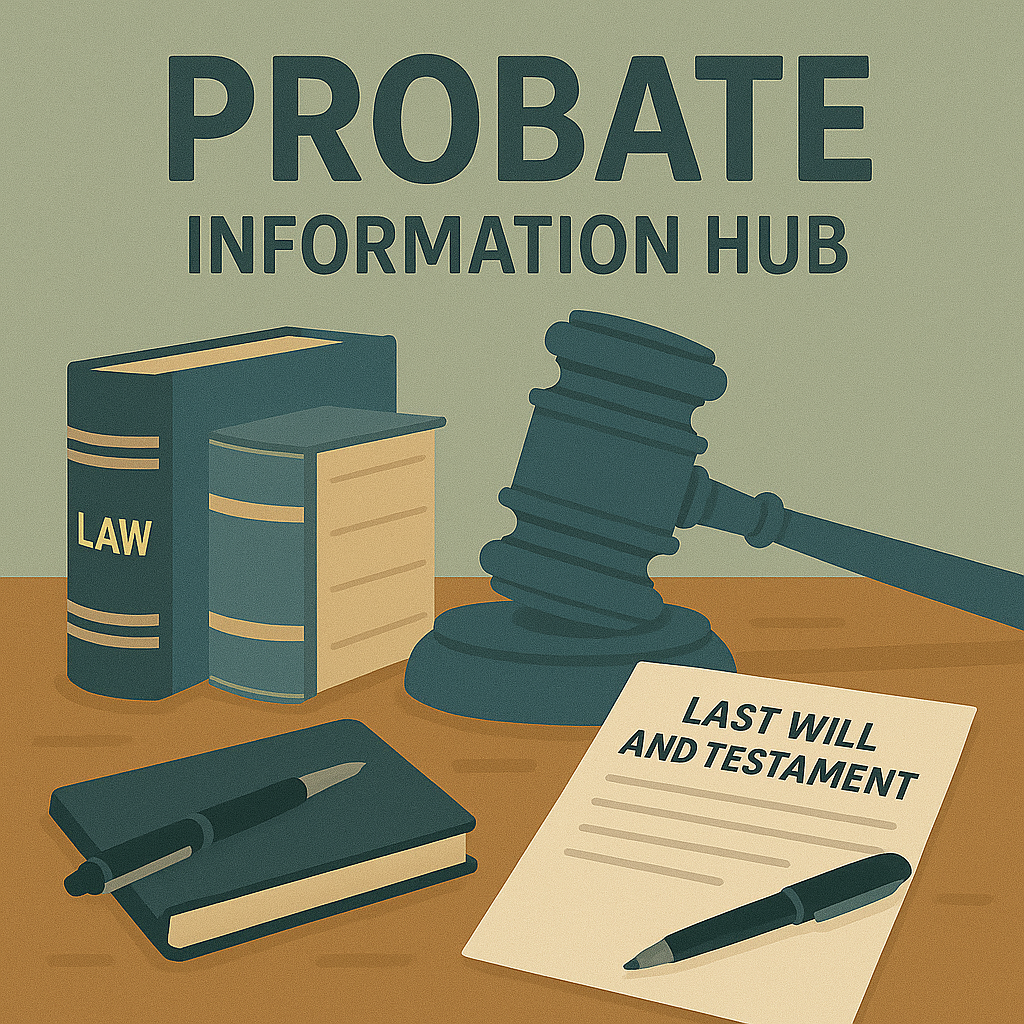Navigating Legacies & Settling Affairs
The Probate Hub
The Probate Hub offers clear guidance, resources, and support to help you navigate estate administration, whether you’re managing a loved one’s affairs or planning ahead for your own. From the basics of probate to simplifying the steps involved, we’re here to help you make informed decisions with confidence and ease.

Key Things To Know
Probate is the legal process used to settle a person’s estate after death. It involves validating the will (if there is one), identifying and distributing assets, paying debts, and ensuring everything is handled according to state law.
- Not all estates go through probate: Small estates or assets with named beneficiaries (like life insurance or retirement accounts) often bypass probate entirely. Many states also offer simplified probate for lower-value estates.
- Having a will does not avoid probate: A will guides the probate process, but the estate still needs to go through court unless all assets are held in ways that avoid probate (like trusts or joint ownership).
- If there is no will, the estate is considered intestate: The court will appoint an administrator, and state law will determine who inherits the assets—often starting with spouses and children.
- The process can take months to over a year: Timelines vary by state and complexity. Delays often result from disputes, creditor claims, or difficulty valuing assets.
- The executor or administrator has legal responsibilities: They must locate assets, notify heirs and creditors, pay debts and taxes, and distribute property according to the will or state law.
- Probate can involve court fees and legal costs: These expenses are paid from the estate, and the total cost depends on the estate’s size, location, and whether attorneys are involved.
- Some assets automatically transfer outside probate: These include jointly owned property, payable-on-death (POD) accounts, transfer-on-death (TOD) assets, and anything held in a trust.
- Public records are part of the process: Because probate is a court proceeding, many details—including the will, asset values, and heir information—become part of the public record.
- Contested wills or disputes can complicate probate: If family members challenge the will or raise concerns about the executor, the process can become longer and more expensive.
- Planning ahead can help avoid or simplify probate: Tools like living trusts, updated beneficiary designations, and joint ownership can reduce the need for court involvement and streamline asset transfers.
Resources
Probate can be confusing and overwhelming during an already difficult time. Our resources are designed to help simplify the process.
Probate Related Content
Frequently Asked Questions
Disclaimer: The information provided on this website and by Buried in Work is for general informational purposes only and should not be considered legal advice. Please consult with a qualified attorney or subject matter expert for advice specific to your situation.




